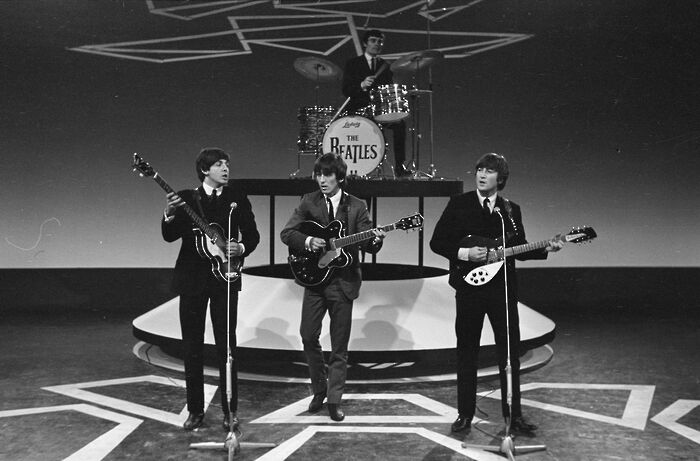Adorno and Jazz
Exploring the work of Theodor Adorno, William Poulos reflects on the philosophical relationship between Marxism and jazz

An interest in Marx has re-emerged lately, like a spectre haunting Europe. Unlike the ghost which troubled Hamlet, this one is silent; I never hear about the “exploitation of labour” or the “alienation of the worker”. I’m sure they’re still happening – maybe the fellows at King’s can tell me about it.
While waiting for my invitation to a formal dinner at King’s, I passed the time by reading about jazz, and discovered that Theodor Adorno thought it was inherently alienating and dehumanising. We know that jazz can tell us about the oppression caused by racism, but how can it tell us about the oppression caused by capitalism?
Writing in the 1930s, Adorno began by denying that jazz had any of the qualities for which it was praised: it was not expressive and spontaneous. Rather, he thought it was essentially formulaic, banal, and – worst of all – fashionable. He granted that the tunes were syncopated, but pointed out that they were played over a rigid beat, always marked by the kick drum. Jazz may have its roots in African music, but any forms of authentic African expression must be attenuated or removed so that the music can be a mass-produced. As Adorno put it, “even yesterday’s music must first be rendered harmless by jazz, must be released from its historical element, before it is ready for the market.” The improvised solos were merely “a pasted-on ornament” to the “most dismal products of the popular-song industry,” meaning Tin Pan Alley, which produced 32-bar songs as if it had an assembly line. Like, say, a piano concerto, jazz was a musical form which claimed it reconciled an individual part (an improvised solo) to a whole (the rest of the song). Adorno rejected this idea as a bourgeois illusion; all tonal music pretends to reconcile part to whole, which cannot happen in the modern world.
A second problem is that, unlike other tonal music, jazz is not “dialectic”. In other words, elements do not progress or develop out of one another; they merely occur after one another. (Although, ideally, solos within a jazz track are meant to be variations on the same theme, I find that this is rarely the case, and the better the individual players, the more distinct their solos.) Organic progress and change based on interactions between individuals were integral parts of Adorno’s ideal society, and he deplored any art which merely juxtaposed different elements, such as the collages and montages of Dada and Surrealism. A collective, authoritarian society aims to make dialectic impossible because it produces criticism. Thus, without dialectic, jazz was the worst product of the pop music industry; it was a commodity, and commodity destroys all relations between people and all genuine feelings. (Adorno seems not to have known that people in occupied Czechoslovakia used jazz to subvert the authority of the Nazis.)
“In sum, for Adorno jazz was a banal commodity. He thought the differences in jazz tracks were variants on the same old formulas, like the superficial variants on the same factory-produced car”
In sum, for Adorno jazz was a banal commodity. He thought the differences in jazz tracks were variants on the same old formulas, like the superficial variants on the same factory-produced car. He celebrated Schoenberg, whom he thought liberated music from tonality because only the avant-garde could save art from mass-produced kitsch. Jazz developed a branch of avant-garde well before his death in 1969, but Adorno never revised his initial thoughts which stated that jazz was merely a product of the pop music industry.
In fact, jazz began to deviate from popular music in the 1940s, only a few years after Adorno wrote his first article about it. Ralph Ellison spent some time with the jazz musicians of the 40s and reported what he learned in an article published in 1959. He found that most jazz musicians were isolated from their audience: they wanted to play what they called “jazz,” which was already very unpopular. Like everyone else, they wanted a decent wage and a steady job, but found that they must please the “squares” (i.e. play pop music) to get one. The choice between playing jazz or having money bred resentment. They hated their audience. They didn’t want to look at them or associate with them. A stage provided welcome separation from the audience, and when one wasn’t available the musicians erected a barrier made of chairs. They developed a language (“geetz,” “gigs”) to separate themselves from the rest of society, and quickly discarded it if it became too widely-spread.
For the Marxist, then, isolation seems inevitable. If you play popular music, you’re a part of the commodity which is isolating people and chaining their spirits to the capitalist machine. If you play unpopular music, you begin to hate your fellow human beings because they won’t pay you to play what they don’t want to hear. In every case, a man is isolated and can have no effect on society. Is that why I haven’t been invited to King’s?
 News / Cambridge student numbers fall amid nationwide decline14 April 2025
News / Cambridge student numbers fall amid nationwide decline14 April 2025 News / Greenwich House occupiers miss deadline to respond to University legal action15 April 2025
News / Greenwich House occupiers miss deadline to respond to University legal action15 April 2025 Lifestyle / First year, take two: returning after intermission14 April 2025
Lifestyle / First year, take two: returning after intermission14 April 2025 Comment / The Cambridge workload prioritises quantity over quality 16 April 2025
Comment / The Cambridge workload prioritises quantity over quality 16 April 2025 Sport / Cambridge celebrate clean sweep at Boat Race 202514 April 2025
Sport / Cambridge celebrate clean sweep at Boat Race 202514 April 2025





